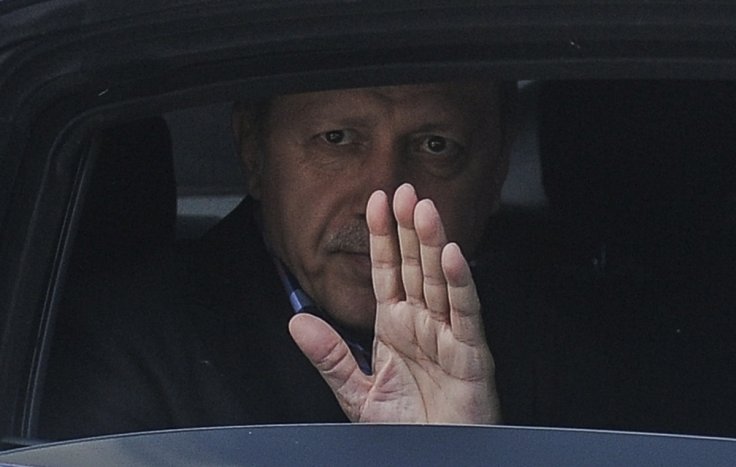
Turkish President Recep Tayyip Erdogan on Monday, April 27 threw his weight behind a top Muslim cleric in the country who made a controversial statement regarding homosexuality.
Ali Erbas, the head of a state-funded agency called the Diyanet, which runs mosques and appoints imams (Islamic leaders who lead prayers in mosques) in Turkey stirred up a hornet's nest during a sermon when he claimed homosexuality causes HIV.
'Homosexuality brings disease'
According to local Turkish media reports, Erbas made the claim in his first Friday sermon of the holy month of Ramadan on April 24. He was quoted as saying "homosexuality brings disease and causes this generation to decay."
The religious leader also claimed that thousands of people were exposed to HIV due to homosexuality and "adultery" every year and that worshippers need to come together "to fight this evil."
Cleric's claims spark widespread criticism
Human rights groups and opposition parties condemned the claims made by Erbas, who heads Turkey's Presidency of Religious Affairs. Even the Ankara bar association criticized Erbas accusing him of inciting hatred against members of the LGBTQ community, while ignoring real issues such as child abuse and misogyny.
President defends religious leader
However, President Erdogan reportedly disapproved of the criticism. In a public address following a cabinet meeting on Monday, April 27, he said an attack on the Diyanet or Erbas equalled an attack on the Turkish state. "What he (Erbas) said was totally right," he added.
Erdogan, who is largely considered to be a pious Muslim and his ruling party Adalet ve Kalkınma Partisi also known as AK Parti has its roots in Turkey's Islamic movement, said that Erbas had fulfilled the duties of "faith, the wisdom of Islam and of his office," and that his words were binding on all Muslims.
Erdogan said the tone of criticism against Erbas had turned into a "deliberate attack against Islam."
'Divine judgment'
Many of Erdogan's allies too are said to have attempted to shun the critics of Erbas. The Diyanet has filed a criminal complaint against the Ankara prosecutors who have opened a probe against the bar association for "insulting the religious values adopted by a section of the society."
Several party officials and supporters have also rallied in favour of Erbas on Twitter.
Erdogan's spokesperson Ibrahim Kalin posted a tweet saying that Ali Erbas voiced a "divine judgement" and that he was not alone.
Omer Celik, spokesperson of Erdogan's Islamist Justice and Development Party, insisted that the cleric's comments echoed the country's democratic values. "Everyone has the fundamental right to speak in Turkey based on whatever value system they believe in," Celik said on Twitter.
Critics including Turkish gay rights group Kaos GL said the religious leader had "spewed hatred with his unscientific claims." The Human Rights Association in Ankara has already filed a criminal complaint against Erbas accusing him of sedition.
The Ankara lawyers' association has reportedly called for his ouster from the Directorate of Religious Affairs (Diyanet).
The association said that it would not be surprised if the cleric next called on people "to light torches and burn women saying they were witches."
Turkish Diyanet
The Directorate of Religious Affairs in Turkey, simply known as Diyanet, was established in 1924 by the Grand National Assembly of Turkey as a successor to the Shaikh al-Islam to oversee religious affairs in secular Turkey after the abolition of the Islamic Ottoman Caliphate. The Diyanet drafts a weekly sermon delivered before the Friday prayers in the nation's over 85,000 mosques and in more than 2,000 mosques around the world that function under it.
The organisation has been criticized for ignoring the Islamic sects that are not Hanafi Sunni Muslims such as Shias who constitute around 30% to 40% of Turkey's population. Many also complain that the organisation has an outsized budget and symbolises Islamic conservatism under Erdogan, despite Turkey being a secular democracy.
Homosexuality in Turkey
Homosexuality has been legal throughout modern Turkey's history and is not banned in the country. But still there are several reports of gay people regularly facing harassment and abuse. President Erdogan's government has reportedly banned several LGBT parades and events in the past, citing public security, including Istanbul Pride, which has been banned for over five years in a row.








